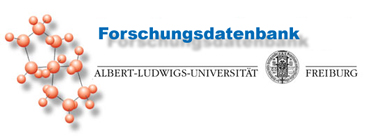| [Zurück zum Forschungsbericht] |
 |

Emotionen bei Insomnien
Projektbeschreibung:We are presenting an interdisciplinary research project whose aim is to investigate the Neurobiological correlates of Emotional Processes in Primary Insomnia. The term Insomnia refers to a difficulty in initiating and/or maintaining sleep accompanied by decreased functioning during wakefulness (AASM, 2005). Current aetiological theories of primary insomnia (e.g. Morin, 1993; Espie, 2002) agree in considering it a multifactor disorder in which predisposing, precipitating and perpetuating factors interact. Relevant predisposing and perpetuating factors are heightened levels of autonomic, cortical, cognitive, and emotional arousal. Although, widely recognized (e.g. Lundh, Broman, 2000), the aetiological role of emotional arousal in insomnia has been scarcely investigated directly, since it has been supported mostly through two kinds of indirect evidences: 1) those indicating that people with insomnia experience negative intrusive thoughts during the pre-sleep period (e.g. Wicklow, Espie, 2000); 2) those reporting significant correlations with clinical anxiety or depression (e.g. Bélanger et al., 2004; Tsuno et al., 2005). The dimensional approach to the study of emotions (e.g. Bradley, 2000) explains the occurrence of emotions as the result of two dimensions: the hedonic tone (valence) and the arousal (from low to high). Within this perspective, insomnia research has focussed on the dimension of arousal but the dimension of valence has been largely neglected. Only few studies have investigated the role of emotional valence using self-report questionnaires (e.g. Scott, Judge, 2006; Norlander et al., 2005), but so far no study has evaluated the neurobiological correlates of emotions in primary insomnia based on the dimensional approach. The neurobiological bases of emotion processing have been studied in major depression, which is a psychopathological condition tightly associated with insomnia (e.g. Johnson et al., 2006). Indeed, the occurrence of isolated insomnia symptoms for a period of more than two weeks predicts increased risk of developing depression within the following three years (Riemann, Voderholzer, 2003). It is speculated that these two clinical conditions share some common neurobiological pathways. Neuroimaging studies of major depression have identified structural and functional brain abnormalities, for example in multiple areas of the prefrontal cortex, and the amygdala (Drevets, 2000). In depression, it has been found that amygdala metabolism is positively correlated with an increased release of cortisol (e.g. Drevets et al., 2002) and data are available evidencing increased release of cortisol also in primary insomnia. These results are, however, not consistently reported. Enhanced cortisol release was found, for example, in people with insomnia compared to good sleepers during the evening and the first half of the night (Vgontzas et al., 2001), however this finding was not replicated by Riemann et al. (2002). High levels of cortisol could be, indeed, positively correlated with the severity of the insomnia symptoms (Riemann et al., 2002). In a recent study (Yoo et al., 2007) the engagement of the neural and cognitive mechanisms regulating emotions was investigated in conditions of sleep deprivation through functional magnetic resonance image (fMRI). Participants were asked to watch 100 pictures selected from the International Affective Picture System (IAPS, Lang et al., 2001) ranging in a gradient from emotionally neutral (neutral valence, low arousal) to increasingly aversive (negative valence, high arousal). The sleep-deprivation group displayed enhanced activity in the amygdala thus suggesting that sleep deprivation can cause an alteration of the normal emotional regulation processes. Interpretation of this study is limited as the dimensions of valence and arousal were confused: it is not possible to distinguish if the increase of activity found depends on the increased negativity of the stimuli or on the increased level of arousal. Furthermore, even if insomnia, which can be described as a condition of chronic sleep deprivation, could be linked to an impairment of normal processes that regulate emotions, it differs from acute sleep deprivation since in chronic insomnia sufferers adaptative processes may have taken place. The proposed study aims at evaluating the role of emotional arousal in primary insomnia, considering both the dimensions of valence and arousal, thus is based on a multidisciplinary approach using the combination of psychological and neuroimaging methods.Projektlaufzeit:
Ansprechpartner: Baglioni, C
Email: chiara.baglioni@uniklinik-freiburg.de
Projektbeginn: 04.04.2009Projektleitung:
Projektende: 31.03.2011
Baglioni, C, Spiegelhalder, K, Riemann; DKooperationspartner
Stellvertretung: Spiegelhalder, K
Albert-Ludwigs-Universität Freiburg
Zentrum für Psychische Erkrankungen (Department)
Klinik für Psychiatrie und Psychotherapie
Hauptstrasse 5
79104 Freiburg
Telefon: +49 / 761 / 270-6501 / -6502
Fax: +49 / 761 / 270-6619
http://www.uniklinik-freiburg.de/psych/live/
Universita La Sapienza Roma Department of Psychosomatics GlasgowFinanzierung:
- EU-IEF
Aktueller Forschungsbericht